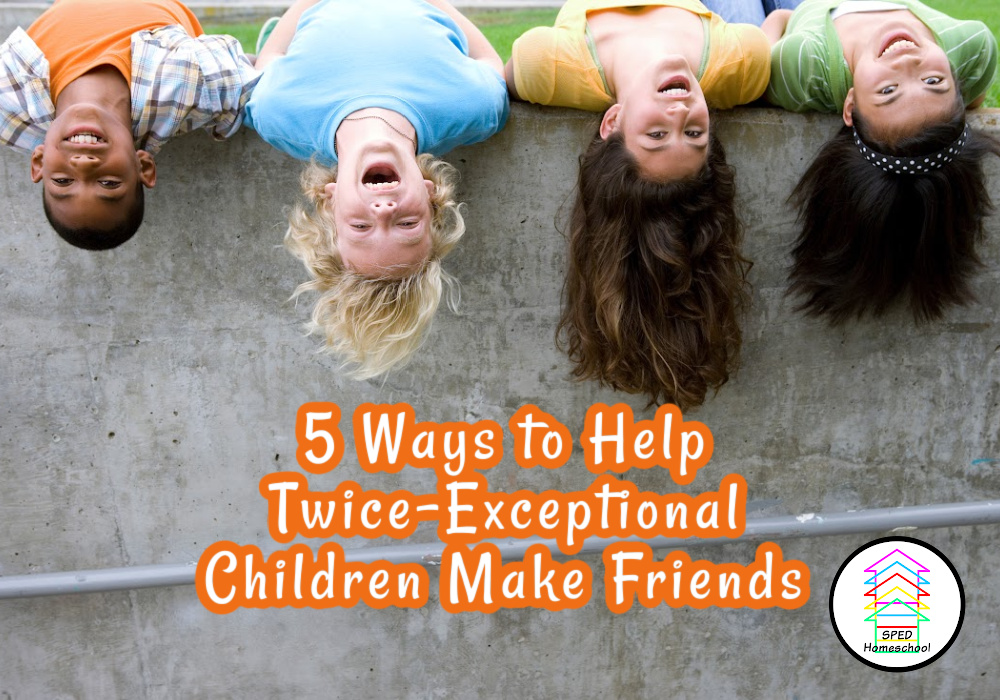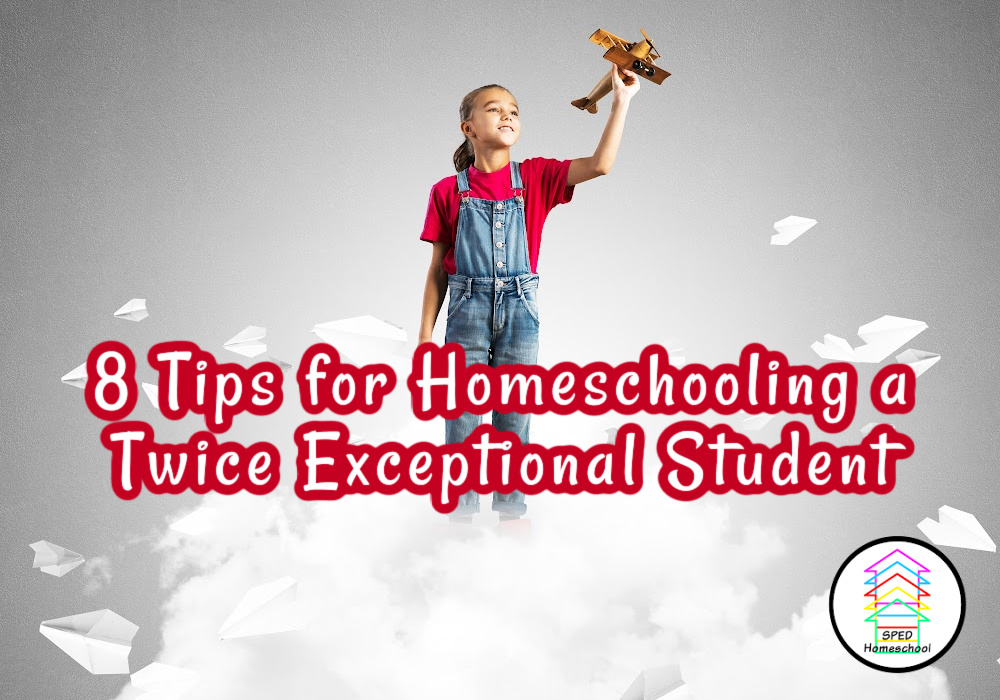
By Sarah Walkey Mcubin
If you have a twice-exceptional (2e) child who wants to make friends, you may have noticed that they have to work extra hard socially. Skills that are easy for others may be very difficult for 2e kids. Thankfully there are many ways to help them make great friends.
After spending my childhood and teen years as a gifted child who never fit in, something clicked in college when I realized that I was not destined to struggle socially. Talking to people became like math. A subject that could be learned and was not a mystery. I started to watch and listen in conversations with a new interest. Instead of feeling completely stressed that I would again say the wrong thing, I became curious about the reactions I was seeing and started making note of the way people behaved and talked.
The Problem With Making Friends
The problem with making friends for anyone that struggles socially is that making friends is actually a pretty active process. It is unreasonable to expect that if someone doesn’t actively talk to people that they will build relationships.
However, if someone is introverted, shy or reserved, they may struggle to simply start the process of making friends and choose to avoid being around people. An extrovert will have so many interactions with people that they are bound to meet people that have similar interests and form a deeper connection. Though someone who struggles socially will have less social interactions. This results in less opportunities to find someone who has similar interests. It is a self-perpetuating cycle, but it doesn’t have to be!
5 Ways to Make Friends
1 – Participate in Regular Activities Based on A Child’s Interests.
It is much easier to make friends when you are around people who have similar interests. Instead of trying to find friends, accidentally, by hanging out at parks or in general homeschool groups, choose to sign up for classes or activities that are based on your child’s interests. They will automatically be spending time with people who like the same things as them which is one key to friendship.
2 – Practice Basic Conversation Skills & Asking Good Questions
Social settings are so much easier if a parent takes the time to role-play social situations. This can be done EVERY TIME they are headed into a social situation that stresses them out. You can practice questions to ask, how to answer questions they don’t know and the general process of conversation, where people ask questions back and forth.
Here are 100+ Funny Questions to Ask Kids
3 – Practice Reading Social Situations
Oftentimes, 2e kids are more sensitive and may struggle to interpret the intentions of others. This can result in getting their feelings hurt more easily. In order to help kids understand their world, I love to practice reading social situations.
One of my favorite ways to learn social skills with my kids is to let them talk about interactions they observe. If someone gets into a fight or someone gets emotional, or is super happy, those are all great opportunities to observe and discuss.
Questions you can use to discuss a social interaction can include:
-What did you see happen?
-Why do you think they reacted like that? Could there have been another reason?
-Do you think they could have been unhappy because of something else in their day?
-If you were talking to that person what could you say?
-What if they said something unkind to you, how could you react?
Practicing understanding social situations from different angles can help kids understand the nuances of social interactions and be less sensitive if something does come up.
4 – Look Out for the Underdog
One of the things I learned being the kid that stood in the back alone was that I LOVED the people who would come find me to say hello. You see, I didn’t use any of these tips when I was growing up. I just waited for people to talk to me.
In college, I realized that I didn’t have to do that. In the dining hall at school, I would get my tray and then look for someone sitting alone and ask if I could eat with them, and everything changed. I realized that if I did that all the time, I would never have to be alone.
Teach kids to look around and SEE who else is alone. They can practice their social skills by going up, introducing themselves and asking some basic questions. Not only will they feel better, the other person likely will too because none of us want to be an outsider in a group.
5 – Don’t Try to Be Friends With Everyone
The reality is, most people don’t need a whole bunch of friends but one or two good ones would be wonderful. In helping kids to make friends, it can be beneficial if they focus on talking to different people, but only building friendships with those who share their interests and are kind.
In helping our kids to make friends, it can be equally important to help them identify the kinds of people that DO NOT make good friends.
When twice exceptional kids are homeschooled, parents have the unique opportunity to structure their days in a way that has just the right amount of social interactions. As your kids grow up, they will likely give input on the kinds of interactions that they enjoy or don’t. It can be tempting to only do things that our kids want to do, but encourage your kids to gradually challenge themselves socially so they can get better at things that are hard.
Sarah and her husband have 9 children and have homeschooled for 15 years. In her journey to find the right education in each season for each child, she has also used public and private schools as well as hybrid homeschool options. During Sarah’s homeschool journey, she was the President of a homeschool co-op for 6 years and is currently the Treasurer of another. Her passion is to help homeschool leaders confidently offer quality programming without burning out! How? She helps homeschool leaders create realistic policies, stay legal with the government, set program boundaries and learn to communicate clearly so that the community you create is one that you love. Connect with Sarah and her resources on her blog, 10 Minute Momentum

 3
3 
